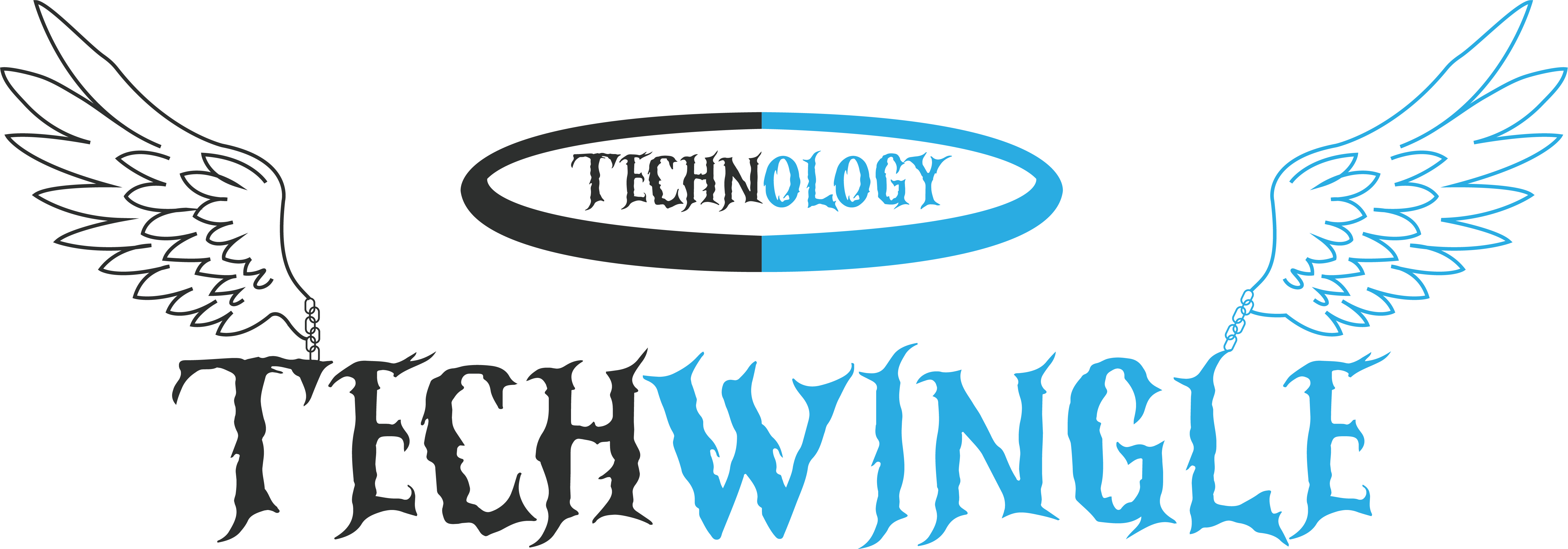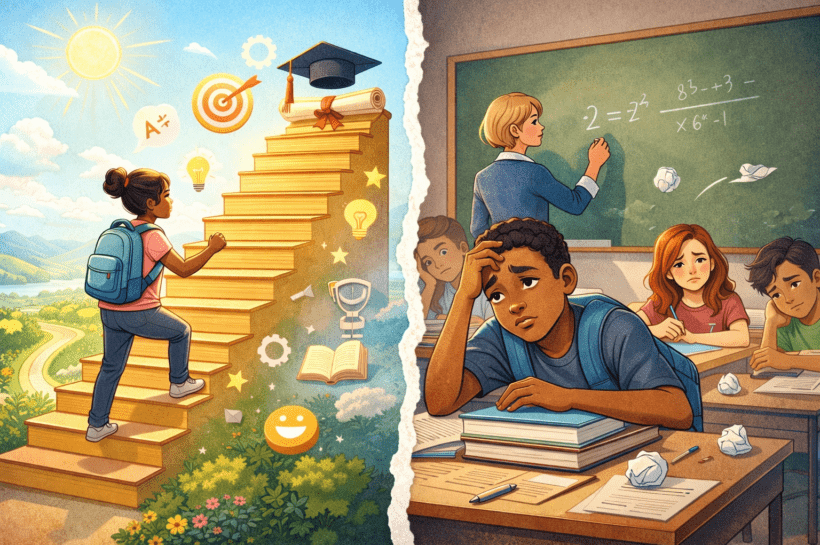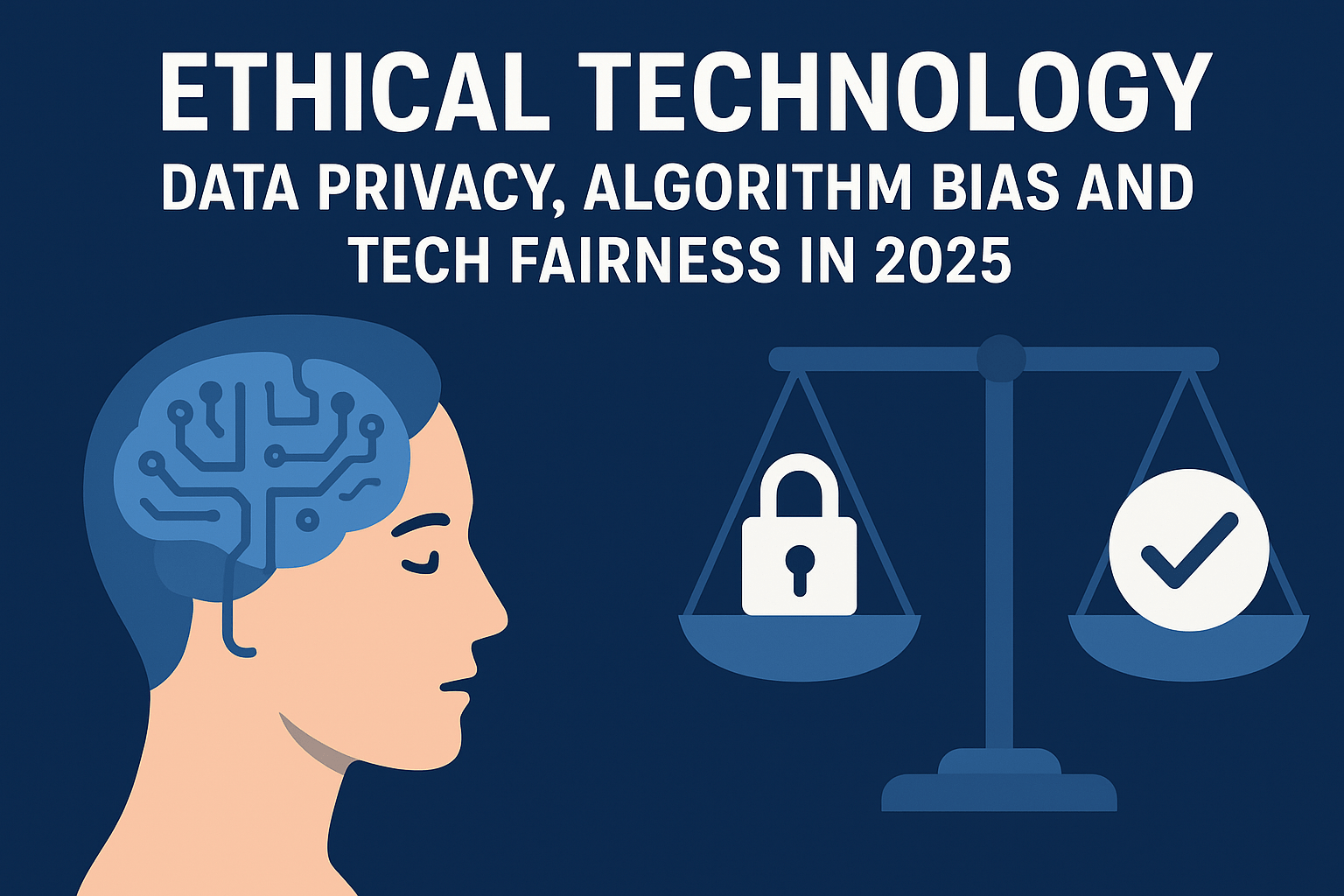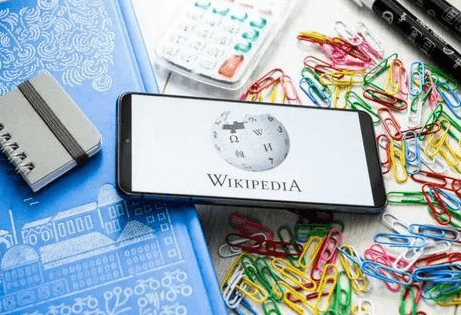In 2025, technology is evolving faster than ever, and with that speed comes a growing concern for ethics, data privacy, and fairness. From artificial intelligence deciding who gets a loan to algorithms shaping what news we see, the world is realizing that innovation without responsibility can create more problems than solutions.
This year, global conversations around ethical technology, algorithm bias, and tech fairness have reached a new level, and for good reason.
The future of innovation is ethical technology, privacy of data, bias in algorithms, and fairness. With the rise in the level of artificial intelligence, individuals are posing increasingly harder questions about the ownership of our own information and the extent to which our digital infrastructures are as fair as they claim.
Discriminative algorithms that affect the hiring process or news feeds, along with new, stringent privacy laws that cover user data, exemplify a trend towards developing technology that is powerful but responsible. Nowadays, technological leaders are supporting innovation with ethics, designing AI and digital solutions with transparency, fairness, and human rights as the primary priorities.
1. What Is Ethical Technology?
Ethical technology means building and using tech systems that respect human values such as privacy, equality, and accountability. It’s not just about writing clean code; it’s about designing digital products that protect people instead of exploiting them.
In 2025, ethical tech has become a core priority for big companies, startups, and even governments. Organizations are now required to ensure their software and AI models don’t harm people through unfair decisions, discrimination, or hidden data collection.
Example:
AI hiring tools now undergo “bias audits” to check if they unfairly reject candidates based on gender, ethnicity, or background, something that wasn’t common just a few years ago.
2. Data Privacy in 2025: The New Digital Currency
Data has always been powerful, but in 2025, it’s become the world’s most valuable resource. Every click, voice command, or online purchase generates data, and companies are hungry for it. But after years of scandals and leaks, users are demanding transparency and control.
What’s New in Data Privacy News (2025):
Global Data Protection Laws Expanded: More countries, including Pakistan, India, and Brazil, have introduced data protection laws similar to Europe’s GDPR.
“Right to Forget” Grows Stronger: People can now request complete data deletion from apps and platforms.
Encrypted AI Models: Tech giants like Google and Apple are testing AI systems that process your data without storing it, reducing the risks of misuse.
Consumers today are more aware than ever. They check privacy policies, use VPNs, and choose apps that promise “privacy-first” experiences.
In short, trust is now the key to success in the digital economy.
3. Algorithm Bias: The Hidden Problem Behind Smart Machines
Behind every AI or app recommendation is an algorithm, a system that learns from data to make decisions. But what happens when that data reflects human prejudices?
That’s how algorithm bias occurs. Wanna Read More? Click Me
If an AI system is trained on biased data, for example, mostly male resumes, it may favor men during hiring. If a predictive policing tool studies crime data from one neighborhood, it might unfairly target people living there, even if they’ve done nothing wrong.
In 2025, many studies show that AI bias is one of the biggest challenges facing ethical technology.
Recent Efforts to Fix Algorithm Bias (2025 News Highlights):
- OpenAI, Google DeepMind, and Meta have published fairness reports on their AI systems.
- Universities are launching “Ethical AI Labs” to test and improve fairness in algorithms.
- Some governments now require companies to provide AI transparency reports before using them publicly.
These steps are helping make artificial intelligence more inclusive, transparent, and fair.
4. Tech Fairness: Making Technology Work for Everyone
Tech fairness means ensuring technology serves all people equally, regardless of race, gender, location, or income.
In 2025, digital fairness has become more than an idea; it’s a global movement. People are demanding that AI systems, social platforms, and smart devices respect everyone’s rights.
Examples of Tech Fairness in 2025:
- Equal Access to AI Tools: Many countries are offering free or low-cost access to AI education and tools for students and small businesses.
- Inclusive Design: Tech firms are involving people from different backgrounds in product design to ensure software works for everyone, not just a small group.
- Fair Compensation: Gig platforms are under pressure to offer transparent pay algorithms and fair treatment for workers.
Fairness in technology isn’t just ethical it’s essential for trust and growth in the digital age.
5. The Role of Governments and Companies
In 2025, governments and private companies are both racing to set ethical standards for technology.
Government Actions:
- Ethical AI Acts: The EU and other regions now require companies to label AI-generated content and explain major algorithmic decisions.
- Global Tech Ethics Summits: International groups like the UN and OECD are working on universal digital ethics rules.
Company Commitments:
- Tech leaders are appointing Chief Ethics Officers.
- Firms like Microsoft and IBM have entire departments dedicated to Responsible AI.
- Startups are promoting “ethical by design” systems where fairness and privacy are built into technology from the start.
This shift shows that ethics in tech is no longer optional; it’s the foundation of progress.
6. The Future of Ethical Technology
Looking ahead, ethical technology in 2025 and beyond will focus on three key goals:
Transparency: Explaining how algorithms work and how data is used.
Accountability: Holding developers responsible for harmful outcomes.
Human-Centered Design Building tech that supports, not replaces, people.
As AI becomes more powerful, humanity faces a choice:
Will we use technology to control others or to empower them?
The answer depends on how seriously we treat ethics, fairness, and privacy today.
Conclusion: The Human Future of Ethical Technology in 2025
The 2025 world is a just phenomenal nexus, the place where novelty will finally take responsibility. Now we have thinking machines, decision-making algorithms, and systems that make predictions. But individuals are posing more questions: Are these technologies fair and ethical to everyone?
There is a fresh digital consciousness that exists all around the world. Individuals have increasingly become aware of the utilization of their data, the way algorithms are made, and how sensitive biases may affect their actual lives. There is no longer a notion of just technology. All apps, AI models, and digital platforms should demonstrate that they are designed on the principles of fairness, transparency, and privacy respect.
Governments are enacting data protection regulations, which require companies to provide the user with control over their data. Technological giants invest in ethically sound AI systems and bias-detection systems to make sure that innovation is not discovered at the expense of equality. Currently, AI ethics is among the fundamental courses taught in universities, enabling the future generation to become conscience coders.
Ethical technology will not retard the new era–it does give a more reliable kind of progress. Firms that practice responsible data usage, understand the algorithm design, and test fairness are not only sparing the population but also developing a more enduring, positive relationship between themselves and the user.
Consider it: in the present day age of information, data privacy is a luxury, not a right of man. The algorithms are challenged, enhanced, and checked to avoid discrimination. All technology, including your phone and self-driving cars, then there is a moral responsibility.
In case the 2010s were about being faster, bigger, and highly innovative, the decade 2020s is about trust, fairness, and digital humanity. The issue has also changed to be not whether we can build it, but whether we should build it–and how can we make it just to everyone?
Technology is going to exist as we will have no control over its development, but rather than the level of technological advancement, the choice is how we will use it with ethics.
Companies, developers, and societies that realize this will be at the top of the world, not only with regard to innovation but also with regard to integrity. Since in 2025 and beyond, ethical technology will not be the watershed of all progress, it will be the start of a more intelligent, safer, and more human digital world. Read More About Tech!
There is one fact that becomes obvious as we enter deeper into this AI-decade:











